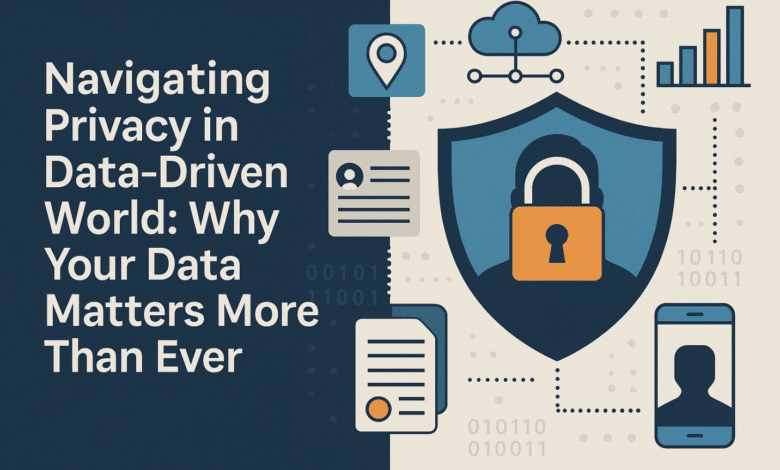Navigating Privacy in a Data-Driven World: Why Your Data Matters More Than Ever

In today’s hyperconnected world, personal data has become the currency of the digital age. With nearly three-quarters of the global population now covered by modern privacy regulations, one would assume that our digital lives are more protected than ever. Yet, paradoxically, the risks to our personal information continue to grow.
From targeted ads to health tracking, our data fuels countless innovations. But as data becomes more valuable, protecting it becomes more complex—and more critical. In this deep Analysis by Nfldraftbuzz, we explore how everyday data practices shape digital privacy and what that means for individuals, businesses, and society.
The Privacy Paradox
Despite growing awareness, over 70% of internet users in countries like India and Nigeria express discomfort with how their data is collected and used. And yet, most of us continue to click “Accept” on permission pop-ups without a second thought.
This contradiction—known as the Privacy Paradox—highlights the gap between our concerns and our behavior. Smartphone apps often request default access to sensitive information like location, microphone, or contacts. The result? A multi-billion dollar industry built on commodifying our digital footprints, often with little oversight.
Data Brokers & Hidden Pipelines
Behind the scenes, a shadowy ecosystem of data brokers collects, trades, and profits from our information—usually without our informed consent. These intermediaries aggregate data from apps, websites, loyalty programs, and even public records.
A recent case in Australia revealed how political groups accessed contact information through multiple data brokers—exposing the murky networks that handle our data. These opaque pipelines make it nearly impossible to know who holds your information or how it’s being used.
The Double‑Edged Sword of Big Data
Big data holds immense potential. In the U.S., for example, researchers are exploring how to securely use data from wearables and shopping histories to address public health challenges.
But poorly secured or misused data can have serious consequences. From identity theft to surveillance, the stakes are high. Fortunately, tools like:
- Data Clean Rooms
- Differential Privacy
- Federated Learning
It enables insights without compromising individual identities—offering a way forward that balances innovation with privacy.
A Framework for Privacy‑First Design
To truly protect user data, organizations need to go beyond compliance and embrace privacy as a design principle. Here’s how:
- Privacy by Design
Embed privacy from the ground up. Anticipate risks, minimize data collection, and default to settings that protect users.
- Data Minimization & Fair Notice
Only collect essential data. Clearly inform users how their data will be used and get explicit consent for any secondary use.
- Technical Safeguards
Use methods like differential privacy (which masks individual data in large datasets) and federated learning (which keeps data local) to reduce risk.
- Governance & Transparency
Implement strong oversight. Audit data flows, enforce deletion timelines, and enable third-party checks to ensure compliance and trust.
- Empower Users
Design user-friendly controls that make it easy to manage privacy settings. Be transparent about what’s collected and why—and give users real choices.
Why It Matters
Trust & Social License
People are demanding greater transparency and accountability. Privacy-respecting companies are earning long-term trust.
Regulatory Momentum
Frameworks like the U.S. AI Bill of Rights emphasize the need for ethical data use, fairness, and accountability in tech development.
Social Well-being
Invasive data practices can fuel anxiety, amplify bias, and lead to real-world harm. Privacy protections are a matter of public health and human dignity.
The Path Ahead
- Regulators must strengthen oversight, close loopholes, and enforce meaningful transparency in data practices.
- Businesses should treat privacy not as a compliance checkbox, but as a strategic advantage that enhances brand value.
- Individuals must stay informed: audit app permissions, limit oversharing, and support companies that respect user privacy.
Final Thoughts
The age of data is here—but privacy doesn’t have to be its casualty. Navigating the digital world responsibly requires more than just awareness. It demands intentional action from governments, corporations, and individuals alike.
If we want to build a digital future that empowers without exploiting, privacy must be the foundation—not the afterthought.




